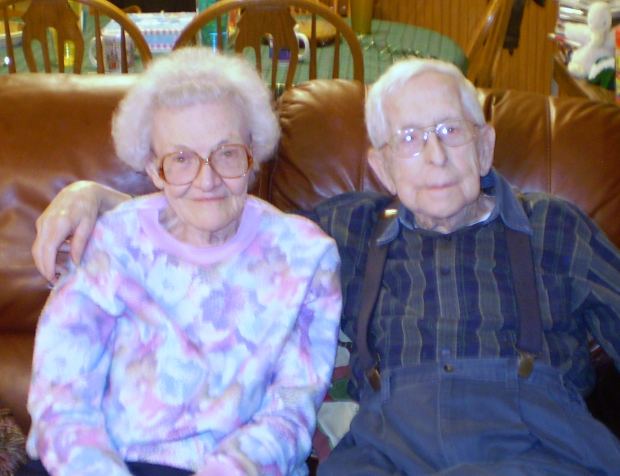Alzheimer’s and Other Forms of Dementia

Alzheimer’s disease and dementia affect a large segment of the elderly population, making providing care for them challenging for family members. Many families are turning to home care services to help shoulder the burden of dementia care; home care services are cost effective and can be a lifeline for families struggling to care for elderly loved ones.
According to the Alzheimer’s Association, there are more than 5 million Americans living with Alzheimer’s or dementia.
 Alzheimer’s & the Forms of Dementia
Alzheimer’s & the Forms of Dementia
Many people use the terms Alzheimer’s disease and dementia interchangeably, but these conditions have significant differences.
Dementia is a term used to describe many symptoms that include cognitive and memory impairments associated with aging. Alzheimer’s can contribute to dementia, as can a variety of other illnesses including Parkinson’s disease, Creutzfeldt-Jakob disease and Huntington’s. Depression, substance abuse and nutritional issues can also contribute to dementia.
Alzheimer’s disease accounts for 70 percent of all cases of dementia, according to the Centers for Disease Control. In Alzheimer’s disease, abnormal plaques and obstructions form in the brain, causing important cell connections to be damaged and lost. Autopsies of Alzheimer’s patients often show significant deterioration of the brain, including shrinkage.
While some forms of dementia caused by drug interactions or nutritional deficiencies can be reversed, Alzheimer’s disease cannot, though it can be slowed.
Categorizing Different Forms of Dementia
Physicians typically categorize dementia into two groups based on the affected area of the brain, cortical dementia and subcortical dementia.
Cortical dementias are caused by issues impacting the cerebral cortex, which are the outer layers of the brain that facilitate language, thinking and memory. Alzheimer’s disease and Creutzfeldt-Jakob both cause cortical dementia. The typical patient with cortical dementia will have problems with memory as well as their ability to understand language and recall words.
Subcortical dementias affect the areas of the brain below the cortex. Patients suffering from subcortical dementias typically do not have problems with language and memory, but rather are affected by thinking slowly and their ability to start tasks. Parkinson’s disease, Huntington’s and AIDS can cause this type of dementia.
Dementia is often also categorized by its cause. The following are other common forms of dementia:
- Vascular dementia is caused by problems with blood flow to the brain and is common among stroke victims and people with serious heart problems.Vascular dementia can develop quickly or slowly over time, based primarily on what issue is causing the condition. Early signs include confusion and disorientation and more advanced cases will show more significant cognitive problems and possibly hallucinations.
- Lewy Body dementia results from protein build-up in nerve cells that disrupt communication in the brain. People with dementia caused by Lewy Bodies will have many symptoms similar to Alzheimer’s and Parkinson’s.
- Older people with Parkinson’s disease will often develop dementia. Parkinson’s sufferers often develop impairments regarding reasoning and judgment. They also often can become depressed and irritable.
- Creutzfeldt-Jakob disease is a rare cause of dementia. Only about one in a million people are diagnosed with the illness each year. Some symptoms of CJD-related dementia include agitation, depression, memory loss and confusion.
Home Care Assistance
Caring for a loved one with Alzheimer’s disease or dementia can place a huge burden on families in both terms of money and labor. The CDC estimates that about 15.5 million Alzheimer’s caregivers put in about 17.7 billion hours of unpaid time providing dementia care and Alzheimer’s care.
Home care provides an affordable means of providing Alzheimer’s and dementia patients with the care they need. It also helps give primary caregivers a much-needed break from tending to the needs of their loved ones.
Home care professionals can provide a number of services for clients with dementia or Alzheimer’s. Some services home care workers can provide include:
- Cooking and feeding clients. Cooking can be dangerous for people with dementia, and some may even forget to eat. In-home care workers can ensure seniors with dementia or Alzheimer’s get good, nutritious meals.
- Help getting to the bathroom and bathing.
- Some basic health care needs such as medications, vital signs monitoring, etc.
- Providing encouragement to stay active. The more physically and mentally active seniors, even those with Alzheimer’s and dementia, the better their health will be.
- Companionship. Social interaction can go a long way to alleviating dementia symptoms and problems and the depression that many seniors with these issues feel.
Always Best Care’s Alzheimer’s home care services provide an affordable solution for families that need help with dementia care to get the assistance they need. With Always Best Care non-medical home care workers, caregivers can take a step back and catch their breath, while knowing that their loved ones are well cared for by trained professionals.





